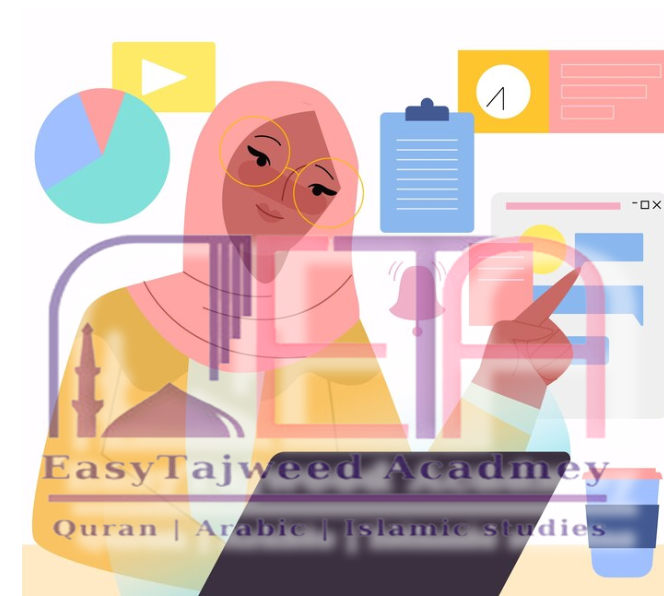Ijazah Meaning: In the realm of Islamic scholarship, the term Ijazah holds great importance, particularly when it comes to mastering the Quran and Hadith. The Ijazah system is a centuries-old tradition that symbolizes mastery, authenticity, and authority in the transmission of Islamic knowledge. This article will delve deep into the Ijazah meaning, the process of earning an Ijazah, and its crucial role in preserving the integrity of Islamic teachings, especially when it comes to learning and teaching the Quran.
What is the Ijazah?
The term Ijazah comes from the Arabic root “ajaza,” which means to permit or authorize. In its most basic sense, an Ijazah refers to a certificate or permission granted by a qualified Islamic scholar or teacher that allows the recipient to teach or recite a particular Islamic text, most notably the Quran or Hadith. In the context of Quranic studies, Ijazah al Quran refers to the permission granted to a person who has mastered the proper recitation of the Quran, allowing them to teach it to others. This concept has been a key component in Islamic education and continues to be highly respected today.
The Ijazah meaning transcends the simple idea of a certificate. It signifies a direct and unbroken chain of transmission (known as isnad) back to the Prophet Muhammad (PBUH). This chain ensures that the teachings and recitations of the Quran are preserved with the highest level of authenticity and precision. The Ijazah Quran system is an essential component of this preservation process.
The Importance of Ijazah in Islamic Studies
The concept of Ijazah has played a fundamental role in Islamic scholarship for centuries. Whether it is Ijazah al Quran, the recitation of the Quran, or the Hadith, the Ijazah certificate is a testament to the level of skill, knowledge, and dedication that a student has achieved. But beyond the individual achievements, the Ijazah meaning lies in its ability to safeguard the accurate transmission of Islamic knowledge across generations. Without the rigorous standards that the Ijazah system enforces, the integrity of these teachings could be compromised.
For instance, the transmission of the Quran, with its unique set of rules for recitation known as Tajweed, demands precision and meticulous attention to detail. A student who earns an Ijazah in Quran recitation is not only proficient in reading the Quran according to these rules but also is authorized to teach these recitations to others. This ensures that future generations can recite and understand the Quran in its authentic form.
The Ijazah meaning is also tied to the concept of trust. When a teacher grants an Ijazah to a student, it signifies that they trust the student to carry forth the knowledge accurately and with integrity. This trust is not given lightly; the process of earning an Ijazah is both rigorous and demanding.
How to Obtain an Ijazah
Earning an Ijazah is a deeply spiritual and academic journey that can take several years to complete. To fully appreciate the Ijazah meaning, it is important to understand the steps involved in this process. The first step typically involves finding a qualified teacher, known as a shaykh or shaykha in the case of female scholars, who holds an Ijazah themselves. This teacher will then guide the student through the rigorous process of learning the Quran or Hadith with utmost precision.
In the case of Ijazah Quran, the teacher will guide the student in mastering Tajweed rules and memorizing the Quran (also known as Hifz). The teacher will also pay close attention to the student’s ability to recite each verse of the Quran with the correct pronunciation, intonation, and rhythm, as laid out by traditional methods.
Once the student has demonstrated mastery, they may be tested orally and in some cases, in writing. If the student passes the test and the teacher is satisfied with their ability, the teacher will then issue an Ijazah certificate, granting the student the authority to teach what they have learned to others. This Ijazah certificate acts as both a formal acknowledgment of their skills and as a direct connection to a lineage of teachers stretching back to the Prophet Muhammad (PBUH).
Different Types of Ijazah
The Ijazah meaning can also differ depending on the type of Ijazah being referred to. For instance, when we talk about Ijazah al Quran, we are specifically referring to the recitation and teaching of the Quran. This can be further broken down into different styles or methods of recitation, known as Qira’at. A student might receive an Ijazah Quran in a specific style of recitation, such as the Hafs or Warsh styles, which are two of the most widely accepted forms of Quranic recitation.
Another type of Ijazah is in Hadith studies, where the recipient is authorized to narrate and teach specific Hadiths that they have studied under the supervision of a scholar. Each type of Ijazah carries its own unique set of requirements and significance, but all share the common thread of ensuring the accurate transmission of Islamic knowledge.
Ijazah Quran: A Deeper Dive into Quranic Recitation
In the realm of Ijazah al Quran, the focus is primarily on achieving proficiency in the correct recitation of the Quran. This includes mastering the science of Tajweed, which governs the pronunciation, articulation, and intonation used when reciting the Quran. Learning to recite the Quran in this way is not merely a mechanical process; it is an act of worship. The proper recitation of the Quran is essential because the slightest error in pronunciation can change the meaning of a verse, which is why students seeking an Ijazah Quran must undergo extensive training.
The Ijazah certificate in Quranic recitation is particularly significant because it also serves as a way of verifying the student’s connection to a teacher who has, in turn, learned from other qualified teachers, creating an unbroken chain of transmission back to the Prophet Muhammad (PBUH). This chain, known as isnad, is crucial in maintaining the authenticity of the Quranic recitation across generations. In many ways, the Ijazah meaning is inseparable from this concept of continuity and authenticity.
The Role of Ijazah in Today’s World
In today’s modern world, the Ijazah meaning still holds a great deal of importance. Even with advancements in technology and the availability of online learning platforms, the Ijazah system continues to be respected for its emphasis on face-to-face transmission of knowledge and its strict adherence to tradition.
Many Islamic institutions and online academies now offer programs where students can work towards obtaining an Ijazah Quran or other forms of Islamic learning. These programs allow students from all over the world to connect with qualified scholars who hold an Ijazah, ensuring that the integrity of Islamic scholarship remains intact, even in the digital age.
Online platforms like Easy Tajweed Academy, for example, have made it possible for students to seek an Ijazah in Quran recitation under the supervision of certified scholars without having to travel. Despite this, the traditional Ijazah meaning remains central to the process. Students are still required to demonstrate mastery of the Quran, and teachers still ensure that the knowledge is transmitted accurately before granting an Ijazah certificate.
Why is an Ijazah Certificate Important?
The Ijazah certificate serves as more than just a symbol of academic achievement; it is a formal acknowledgment of a student’s proficiency in a specific area of Islamic study. But beyond that, the Ijazah certificate represents the continuation of a centuries-old tradition of knowledge transmission in Islam.
Possessing an Ijazah Quran allows an individual to teach the Quran with confidence, knowing that they are carrying on a noble tradition. Moreover, the Ijazah certificate is often required for individuals who wish to teach in formal Islamic institutions or lead Quranic classes in mosques. The trust that comes with holding an Ijazah ensures that the teacher is recognized as a legitimate authority in Quranic recitation.
The Future of Ijazah
As more Muslims across the world become interested in learning and teaching the Quran, the demand for Ijazah al Quran programs continues to grow. The traditional Ijazah system, with its emphasis on face-to-face learning, continues to adapt to modern contexts while maintaining its core principles. Scholars are increasingly finding ways to incorporate technology into the Ijazah process, offering students more flexibility without compromising on the quality of instruction.
Despite these advancements, the Ijazah meaning remains firmly rooted in its historical and religious significance. The Ijazah certificate continues to symbolize not only personal achievement but also the responsibility to preserve and transmit the sacred knowledge of Islam with accuracy and devotion.

The Everlasting Significance of Ijazah Meaning
The Ijazah meaning holds deep significance in the Islamic tradition. Whether it is Ijazah al Quran, Ijazah Hadith, or other forms of Islamic knowledge, the Ijazah certificate serves as a powerful testament to the recipient’s mastery and dedication. More than just a certification, the Ijazah represents a sacred trust, passed down through generations of scholars, ensuring the preservation of Islamic teachings.
As the world changes, the role of Ijazah in Islamic scholarship remains as crucial as ever. In both traditional and modern contexts, the Ijazah meaning continues to embody the values of trust, accuracy, and dedication to the sacred knowledge of Islam. The Ijazah Quran, in particular, remains a cornerstone in preserving the Quran’s authenticity and ensuring its proper transmission for future generations.


